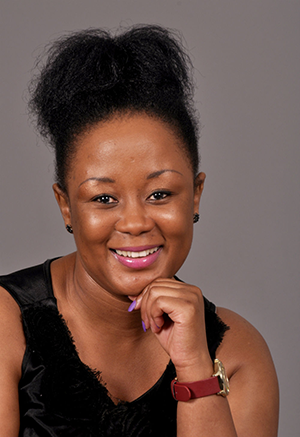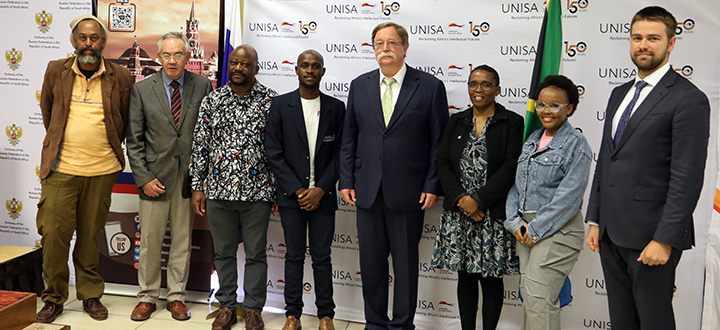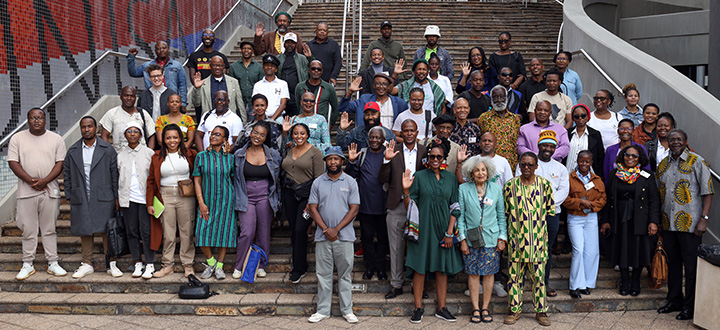News & Media
Why converse about ethics as an integral part of cyberspace?
The Unisa Ethics Officer, Zibuyile Jafta, was one of the speakers at and content contributors to a recently conducted global conversation designed to provide solutions that ensure that ethics content and ethical conduct become an integral part of the post-pandemic new world order.
 This global conversation focused on cyber-ethical learnings from the pandemic, with an emphasis on strengthening equal access to online education within the context of poverty and gender issues. The session was represented by participants from across the world, including Southern Africa, Central Africa, West Africa, USA, Europe, Canada, and some parts of Asia. Even though the speakers geographically represented only three continents, the content shared and presented explored ethical learnings across the world.
This global conversation focused on cyber-ethical learnings from the pandemic, with an emphasis on strengthening equal access to online education within the context of poverty and gender issues. The session was represented by participants from across the world, including Southern Africa, Central Africa, West Africa, USA, Europe, Canada, and some parts of Asia. Even though the speakers geographically represented only three continents, the content shared and presented explored ethical learnings across the world.
WHY CONVERSE ABOUT ETHICS AS THE INTEGRAL PART OF CYBERSPACE? WHY SHOULD SUCH CONVERSATIONS BE POINTS OF FOCUS DURING THE PANDEMIC AND THE POST-PANDEMIC ERA OF COVID-19?

Zibuyile Jafta (Unisa Ethics Officer) is a Southern African Globethics Programme Executive responsible for the promotion of applied workplace ethics in higher education in the Southern African region. This position forms part of corporate citizenship representing the university. The appointment started in 2015 and has been renewed every three financial years according to the contract between Unisa and Globethics.Net. The renewal has been based on performance.
The world is at the awakening of a new world order, one that is shifting from physical contact to online ways of leading life, teaching, learning, and working. We are witnessing a paradigm shift in the transformation of the architecture of teaching and learning where online education is becoming the most preferable way of education owing to the effects of the Covid-19 pandemic. This is, therefore, enhancing the importance of cyberspace in the emerging new world order. If ethics are not made an integral part of the cyberspace, then the world will be preparing for a world of intelligent felons where moral myopia is a philosophy at the expense of the right, the just, and the good.
The issues pertaining to the integrity of information, false news, availability of required information and resources, privacy, accuracy, rights versus freedom, access to all, exclusion to due poverty and gender disparities, online education, gender matters and equal access to online education, confidentiality versus transparency as well as disparities and inequalities within the society were addressed, as well as cyber-ethical learnings from the pandemic.
Several proposed solutions emanating from this global conversation included the idea of the establishment of institutions that would promote an ethically inclusive cyber-profession. These institutions would, inter alia, promote conferences, publications, initiatives, programmes, and projects that advocate for the inclusion of ethics in the cyber-profession and cyberspace.
The call is not just to focus on law in cyberspace, but also to consider its ethical nuances in theory and in practice for a better world. This further calls for the redefinition of the focus of the licence to exist and the redefinition of corporate social investment, or what some may call corporate social responsibility, by blue-chip companies and multinational companies. Taking advantage of the emerging philanthropic and humanitarian acts of doing good towards facilitating the strengthening of equal access to online education (by providing the required online education data, electricity, computers, and laptops) was also proposed.
The hope is for public and private entities to work together in closing the observed disparities in the equal access to online education while the respective regulators in cyberspace consider the inclusion of ethics in cyberspace and its profession.
You can watch the webinar in these three videos:
*By Zibuyile Jafta, Deputy Director: Ethics Management, Department of Internal Audit
Publish date: 2020-05-27 00:00:00.0

 Unisa's student leadership engage with Russian ambassador
Unisa's student leadership engage with Russian ambassador
 Re-igniting and re-imagining Pan Africanism, Afrocentricity and Afrofuturism in the 21st century
Re-igniting and re-imagining Pan Africanism, Afrocentricity and Afrofuturism in the 21st century
 Young Unisa science stars join elite Lindau Nobel Laureate group
Young Unisa science stars join elite Lindau Nobel Laureate group
 Education MEC addresses Unisa autism seminar
Education MEC addresses Unisa autism seminar
 Seven Unisans nominated for the NSTF-South32 Awards 2023/2024
Seven Unisans nominated for the NSTF-South32 Awards 2023/2024